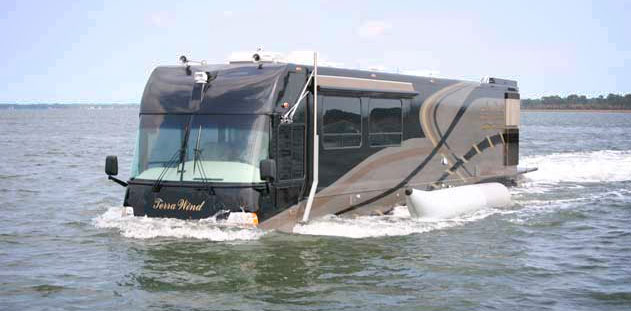
Test Your Survival Gear
You went and got yourself a whole pile of gear to prepare you and your family for an emergency situation.
Congratulations! You are 3/4 of the way there. Welcome to the wild world of prepping.
Now comes the next most important step: LEARNING HOW TO USE IT ALL.
Don't wait until it's too late. Practice using it all before an emergency!
Practice Emergency Scenarios
Lets imagine a superstorm is about to hit your area. High-winds and flooding are expected to wipe out neighborhoods. The power grid will be down. The gas stations have been pumped dry and the all the grocery stores have been cleaned out.
You have to evacuate your home along with everyone else in a 15 mile area, and it needs to be done NOW.
You were planning to go to a family members house in another state but the storm blocks you in. Thousands of people get stuck. All the hotels and shelters fill up fast, and there is nowhere for you to take you and your family.
It maybe days before FEMA arrives or you can return home - if it's still standing.
Where to Sleep
Lets start with those of you who have never slept anywhere but a bed and have no desire to ever do otherwise.
If you want to take this whole thing seriously, you are going to have to try to spend a night outside every once in a while.
It doesn't have to be hard or uncomfortable or full of bugs, we promise! Why, do you ask? Because you are taking yourself out of your home, out of what you are used to, and it will make you realize over the course of the day(s) and night(s) what things are easy to do and what are hard.
What do you wish you had with you? What didn't you use or need?
Sleeping is different. Eating is different. The bathroom is different.
These things will all face you should you have to leave your home and for one reason or another cannot be dependent on the familiar society you are used to - the resources you have become accustomed to.
In order to make these things comfortable you have to have experienced them at least once to know what it feels like, what's different, and what you can do to make it better.

Starting off slowly
Try car-camping first. Look for a state park near your home. Nearly all of them have bathroom and shower facilities, hot and cold water, and electrical hookups.
Try making a meal and sleeping in a tent. Have access to hot showers and flushing toilets so the whole family stays happy. Try to overcome your fear of public toilets if you have one (this is a big one for some folks!)
Then try again - but go for 2 or 3 nights. Did you pack enough or too much food? What about water, did you lug a ton of little plastic bottles from Walmart?
How much space did all this gear take up?
You will likely find that you completely over-packed. That's OK, that's the typical way to do it. Think about what you used and what you didn't use.
At this point most folks would probably stop. And that's OK - you learned something if you paid attention to the trip with the right mind-set. However the more practice the better you will get.
There are many skills to learn and you could spend a lifetime developing them. We've been doing this for years and we are still dialing-in our needs and our gear.
No problem, we have an RV!
OK for the RV folks, we want you to think about this one for a second.
If we are talking about a small trailer or camper then maybe that will be a viable option.
This really depends on where you live, and where you would go if you had to evacuate from your home.
Will you be able to maneuver that massive mobile home through a crazy and perhaps incredible traffic jam? Will you be able to take it everywhere you might need to go? Any city driving you might encounter? Does it float?
An RV is an awesome thing to have and may be a lifesaver for you and your family. Make sure you keep it stocked with bug out gear, so you could get in it, turn the key and take off if necessary.
Have an escape route and a place to go

Hopefully in the event of an actual emergency there should be other resources available: friends, family, community, charitable and government agencies will likely be on hand to assist and coordinate everyone's efforts.
Disasters can occur very quickly but it might take days before help can arrive. That's why we plan for having 72-Hours or three days to get ourselves safe and secure.
But please, don't "wing" it. Know where you would go if you had to leave your home ahead of time. Have a planned route to get there. Have a backup location and route.
Define a planned meeting place should communication be disrupted.
Talk about these things with your friends and family. See who will help and who wont.
You will find many people just hope for the best and have no inkling what they will do in an emergency - are you going to have to plan for their needs too? Do you have elders, children, pets who need special attention?
Work out what they will need, and how you will bring it all with you when the time comes.














